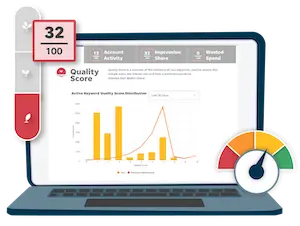Google rolled out yet another new AdWords feature last week: dynamic search ads.
The same day they announced the introduction of dynamic search ads, they also announced that AdWords Express was rolling out to the UK and Germany. Back in August I wrote about Google’s focus on display and talked about how:
You can learn a lot about marketing from Google, and if you’re in search marketing paying close attention to what Google says and what types of things they place emphasis on are vital to your livelihood. This is why Matt Cutts gets 350 comments on a post announcing a change in the algorithm that affects around 2% of queries, and it’s why search marketers have a much keener interest in Google Plus and its integration in SERPs, Webmaster Tools, et al than your average social network.
Similarly, if you head over to Google’s official AdWords blog you’ll see a lot of focus on small businesses, and in both AdWords Express and dynamic search ads we see a product focus on helping advertisers target a greater number of searchers without having to build out extensive campaign structures. Being aware of these types of themes is important, because typically they will start to seep into basically every area of the AdWords product.
So What Are Dynamic Search Ads and How Can I Use Them?
Google paranoia aside, what are Dynamic Search Ads? Dynamic search ads represent a new way to target prospects without using keywords. The process is as follows:
- You indicate to Google that you want to add all Webpages (which means any pages Google has crawled) OR
- You indicate to Google that you want to add any of four different types of targets:
- Category – This is not your categorization, but rather Google’s categorization of pages on your site and their perceived themes.
- URL – You can target specific URLs or URL structures (i.e., subfolders that represent your own categorization).
- Page Title – This pulls from the titles of your pages.
- Page Content – This references the on-page content.
- You indicate what you’d like to exclude by the means above.
- You create headlineless ad copy (Google will dynamically generate a headline for you).
- Google looks at your content and determines both what keywords to show your ad in response to and which landing page to send traffic to (as well as what your headline should be).
When Would it Make Sense to Use Dynamic Search Ads?
Dynamic Search Ads are one of the more practical methods of AI marketing. There are really a couple of use cases for dynamic search ads:
- Smaller Advertisers – As with AdWords Express (or any advertising option, really) creating a dynamic search ads campaign might make sense if your spend is small, the campaign you create leveraging this technology is ROI efficient, and the management cost of setting up your own campaign would be a net negative, even if it were more profitable. If you’re spending a couple hundred dollars a month on pay-per-click, this very well may be you: give the campaign a try and see if it’s positive ROI for you. If it is and you’ve struggled with AdWords in the past, it may be worth letting this methodology run and focusing more on other areas of your business.
- Keyword Discovery – For mid-sized to large advertisers the best use case is likely as a new angle for keyword expansion. By leveraging dynamic search ads to find keywords you might not have in your campaign and then leveraging the top performers (a la good old-fashioned search query mining) you can generate more, relevant traffic you might not have otherwise been aware of.
Potential Pitfalls with Dynamic Search Ads
The things you need to be cognizant of with this new option are:
- ROI – As with broad match, AdWords location targeting, and several other AdWords features, ceding full control to Google frequently means optimal ROI for Google, but not always for you, the advertiser.
- The Pages You’re Including – Be leery of which pages or groups of pages you’re including for consideration, as making pages available that would offer a poor landing page experience or irrelevant targeting could be costly.
- Budget Allocation – If you are leveraging dynamic search ads for keyword discovery, be careful not to assign too much of your budget to an underperforming campaign.
As with nearly every AdWords feature, there are spots where dynamic search ads can be helpful (particularly for e-commerce advertisers), but you have to be careful to measure its effectiveness and use it carefully.









Comments
Please read our Comment Policy before commenting.